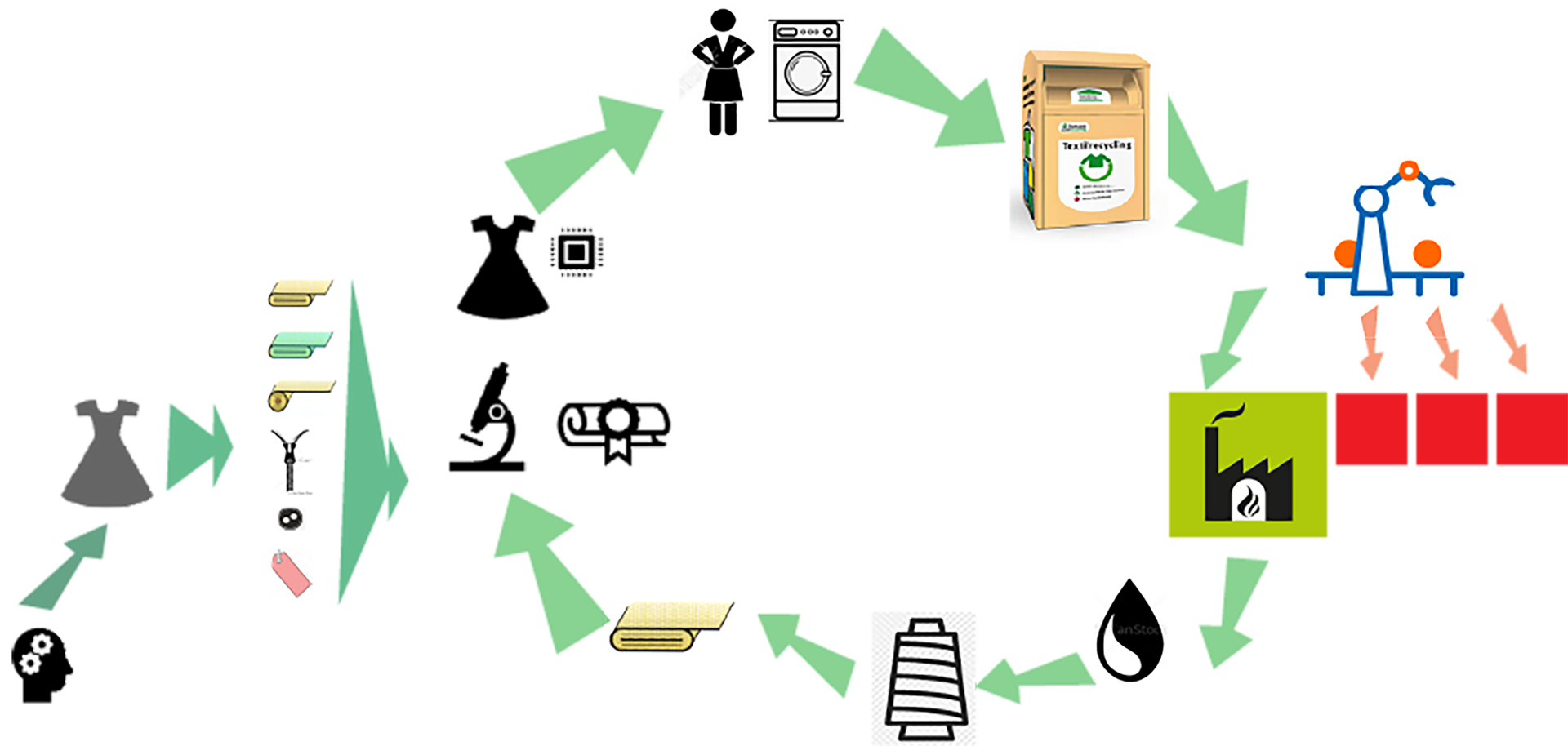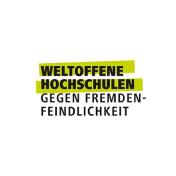In Germany alone, 26 kg of textiles are purchased per capita every year, according to a survey by RTWH Aachen. According to a 2018 study by Greenpeace, up to 20% of all clothing waste worldwide is made from synthetic materials. The majority of clothing waste is currently thermally recycled, but incineration of the materials is not a sustainable disposal strategy due to the emissions generated. One solution is re-oiling with the help of pyrolysis. This is a process in which long plastic molecules are broken down under high pressure and at very high temperatures and in the absence of oxygen and returned to their original state as oil.
The aim of the C4 project is to develop a closed and controlled life cycle for clothing made from mixed synthetic materials. The composition of the materials is assessed before production, this information is stored on an RFID chip, integrated into the clothing, fed through a collection system to recycling centres, sorted out and transported to a pyrolysis plant.
The complete recycling of polymers by pyrolysis is currently only possible for pure plastics. The complex composition of today's synthetic materials does not allow the polymers to be returned to a pure raw material by melting, as recycled, mixed or contaminated plastics lose quality. The reason for this is that the various types of polymers have different melting temperatures, which means that they may not be melted if the energy input is too low or may be carbonised if the energy input is too high. Additives for surface treatment as well as plasticisers and dyes in particular prevent ecologically clean and complete recycling.
The task of the Faculty of Textiles and Design at Reutlingen University in this project is to research all synthetic materials used in the clothing industry and classify them in terms of their recyclability. This includes all textile synthetics used as outer or lining fabrics, coatings, membranes for functionalising clothing, nonwovens, yarns used for making up, adhesives and also fastening materials such as buttons, zips and Velcro fasteners. A standardised analysis process is then developed so that it is possible to identify the exact composition of materials and clothing. This information about the percentage by weight of the material composition is then stored on an RFID chip, which is integrated into the garment. This information is confirmed by a certificate or seal that provides the customer with transparent information on recyclability. The garment manufacturer Wonneberger Manufaktur is responsible for developing the manufacturing process, taking into account the comfort and durability of the garment. In the process, the route to recycling centres that the consumer perceives as acceptable and natural is examined. The aim is to maximise the amount of used clothing that can be recycled. The RFID chip is programmed in such a way that the clothing that can be re-oiled is recognised by an automated demonstrator system at recycling centres and sorted into a special container. This is designed by ATG Automations-Technik Gröditz GmbH & Co. KG, which specialises in automation technology and the development of sorting machines. In the final stage of the garment's life cycle, the various synthetic raw materials are returned to their original form, i.e. crude oil, by pyrolysis. The parameters of the pyrolysis system are set using precise information about the proportion of the individual materials used and the basis weight of the garment, so that the highest possible proportion of the liquid phase is achieved after the pyrolysis process. This is achieved by the stored composition of the raw materials and the optimisation of the pyrolysis plants by the Czech project partners. Furthermore, reaction conditions for thermal splitting are being analysed for pure and real types of waste. It is envisaged that the transfer of information from the clothing to the container and to the pyrolysis plant will take place automatically and require no further human intervention.
Internal project participants: Wonneberger Manufaktur GmbH, ATG Automations-Technik Gröditz GmbH & Co. KG
Project duration: 01.09.2020-31.05.2023







